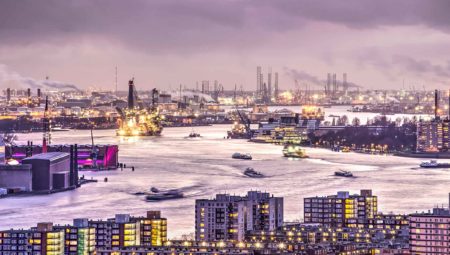The development of the Hydrocat has been supported by the municipality of Rotterdam and the Dutch province of South Holland since its lab phase. Obbotec received the municipality’s Energy Transition Budget and a grant voucher from the Energy & Climate innovation programme, for the design and a risk assessment of a full-scale unit. Late last year, the Hydrocat project was awarded a €1.7 million grant to work on the construction of a demonstration unit at Plant One Rotterdam. This should be operational in 2025.
Contaminated and mixed streams
What makes the HydroCat special is that it can handle mixed waste, so-called ‘Non Recyclable Waste.’ It is a huge waste stream characterised by large quantities of contaminated and mixed biomass and plastics. Gert Eilander, project manager at Obbotec: “We can strip such a waste stream of metals, stones and excess moisture so that as much biomass and plastics as possible remain. We make these small enough to fit in a HydroCat plant. That is about the size of a container and converts the waste into oil and gas through a clever combination of several chemical processes. The oil can be used for marine fuel, for example, or as a base product in chemistry to make new plastic products, such as clothes, phones and packaging material.”
Because the HydroCat works with small units that can be placed where the waste is, there is no need to move large waste streams. One unit can process 10,000 tonnes of waste. Depending on the composition, the waste is converted into about 4,000 m3 of low-sulphur, high-quality fuel and up to 24,000 tonnes of CO2 are reduced per year. Eilander: “Our ambition is to build thousands of plants or save tens of millions of tonnes of CO2. This would enable us to reduce 1% of climate emissions worldwide.”
World wide export
Realising such an innovation does require many steps, takes years and is expensive. Investors are wary because of the risks. That is why government support is important. “From the Industry Transformers Platform, we as a municipality work together with the province of South Holland, InnovationQuarter and the Port Authority,” says Peter Verschoor of the municipality of Rotterdam. “We select interesting initiatives like Hydrocat and help strengthen their business case by connecting them to new partners, subsidy schemes and investors. We ourselves also learn well through involvement in such a project what needs to change, for example, in laws and regulations or in spatial planning to take an innovation further. Ultimately, we can use an innovation like this to strengthen South Holland’s position in chemical recycling technology. The knowledge we gain here can be exported all over the world.”
For more information on the HydroCat, visit Obbotec’s website. For more information on grant programmes and other support for companies, see InnovationQuarter’s website.
Image: IndustryAndTravel/Shutterstock



